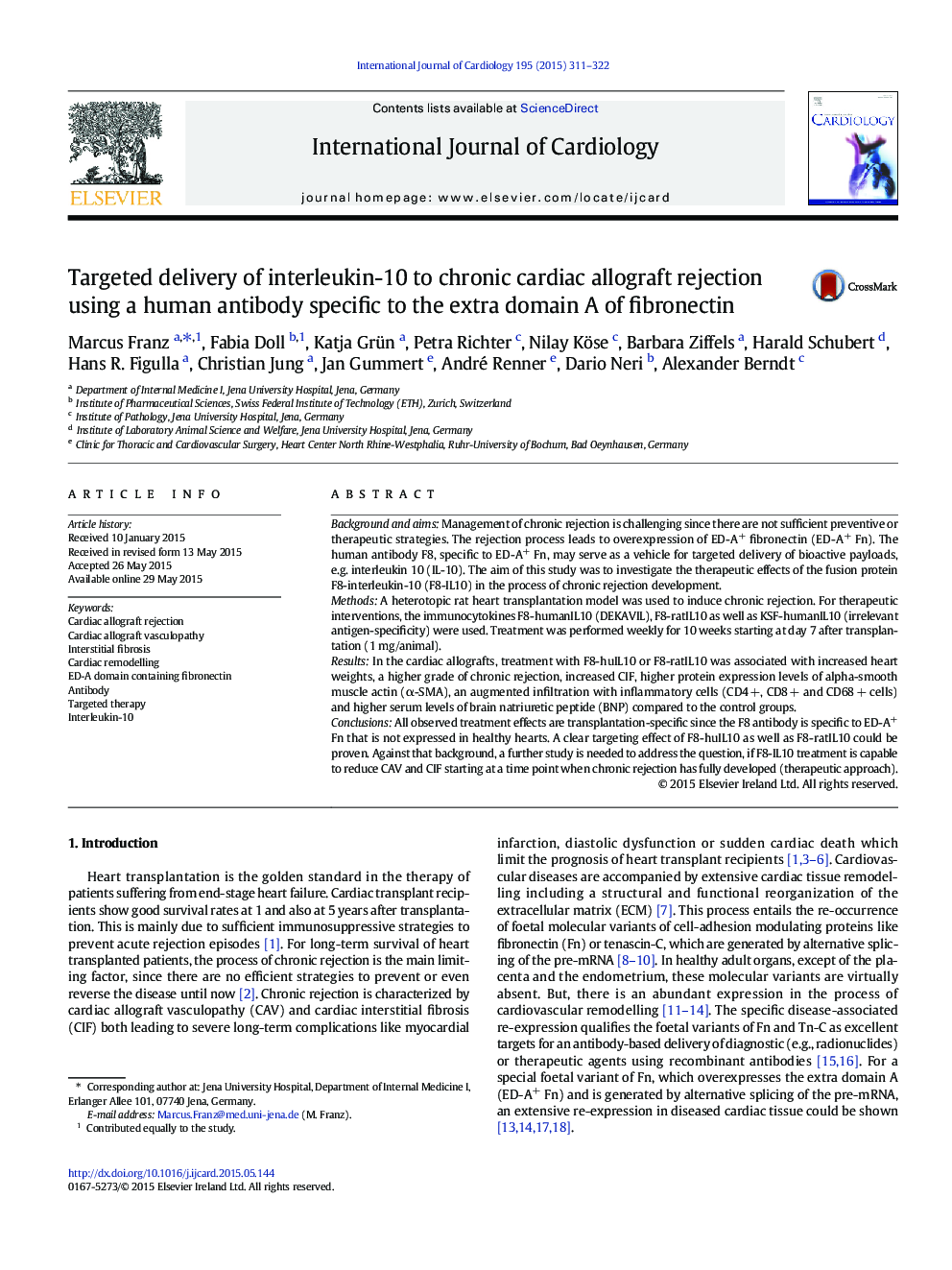| Article ID | Journal | Published Year | Pages | File Type |
|---|---|---|---|---|
| 5966156 | International Journal of Cardiology | 2015 | 12 Pages |
Background and aimsManagement of chronic rejection is challenging since there are not sufficient preventive or therapeutic strategies. The rejection process leads to overexpression of ED-A+ fibronectin (ED-A+ Fn). The human antibody F8, specific to ED-A+ Fn, may serve as a vehicle for targeted delivery of bioactive payloads, e.g. interleukin 10 (IL-10). The aim of this study was to investigate the therapeutic effects of the fusion protein F8-interleukin-10 (F8-IL10) in the process of chronic rejection development.MethodsA heterotopic rat heart transplantation model was used to induce chronic rejection. For therapeutic interventions, the immunocytokines F8-humanIL10 (DEKAVIL), F8-ratIL10 as well as KSF-humanIL10 (irrelevant antigen-specificity) were used. Treatment was performed weekly for 10 weeks starting at day 7 after transplantation (1 mg/animal).ResultsIn the cardiac allografts, treatment with F8-huIL10 or F8-ratIL10 was associated with increased heart weights, a higher grade of chronic rejection, increased CIF, higher protein expression levels of alpha-smooth muscle actin (α-SMA), an augmented infiltration with inflammatory cells (CD4 +, CD8 + and CD68 + cells) and higher serum levels of brain natriuretic peptide (BNP) compared to the control groups.ConclusionsAll observed treatment effects are transplantation-specific since the F8 antibody is specific to ED-A+ Fn that is not expressed in healthy hearts. A clear targeting effect of F8-huIL10 as well as F8-ratIL10 could be proven. Against that background, a further study is needed to address the question, if F8-IL10 treatment is capable to reduce CAV and CIF starting at a time point when chronic rejection has fully developed (therapeutic approach).
